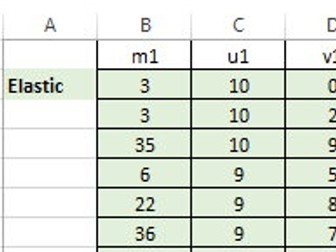GCSE Physics - Electricity Formula Triangles - Revision
<p>This resource can be used to develop recall and application of the electricity equations in GCSE Physics:</p>
<p>V = IR<br />
P = VI<br />
Q = It<br />
E = Pt<br />
E = QV</p>
<p>The formula triangles are shown on the worksheet but can easily be removed if appropriate. The task involves students calculating all of V, I, R, E, P, t from a given set of values. It requires students to think about how they can work out a missing variable based upon what they’ve been given. The values used in the worksheet tend to be small whole numbers so this worksheet can be completed without a calculator for extra challenge.</p>
